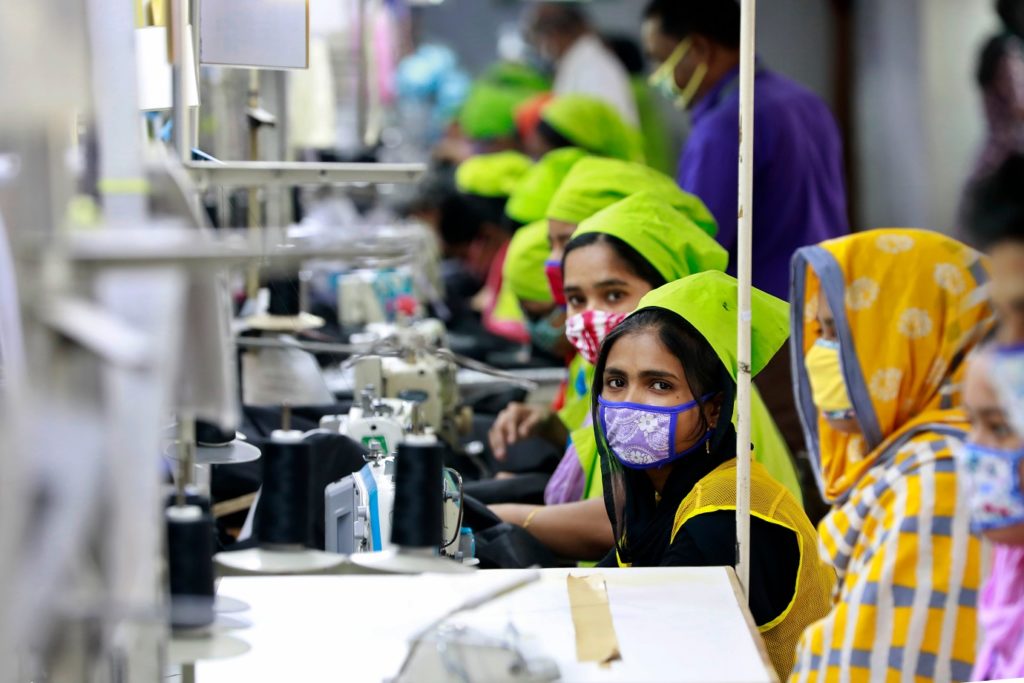As the countdown to Christmas gathers pace, and Australian’s rush to finish last-minute shopping, let’s spare a thought for the factory workers who have made many of the gifts sitting wrapped under our Christmas trees.
A new report by global women’s rights organisation, ActionAid Australia, reveals a dire situation facing garment workers in Bangladesh and Cambodia – two prominent garment producing countries for the Australian market. Of the 200 workers surveyed as part of the research, most workers say their household has run out of money to buy food.
With job cuts, wages slashed and rights at work under threat – COVID-19 is pushing garment workers further into poverty, hunger, and debt.
At the same time, Australian brands are returning to profitability after the supply chain disruptions and store closures caused by successive COVID lockdowns. In the 2020-21 fiscal year, Australian brands have made more than AU$1 billion in profit and this year’s Black Friday and Cyber Monday sales reached a record high of AU$8 billion. Sadly, these profits aren’t trickling down to the workers in their supply chain.
The exploitation at the heart of the fashion industry
The ActionAid report Causalities of Fashion: How garment workers are wearing the cost of COVID-19 highlights how leading Australia and international fashion brands continue to push the costs of the pandemic onto the garment workers making their clothes – 80% of whom are women.
The report reveals that most workers were being paid well below a living wage before the pandemic hit. In Bangladesh, 36% of workers surveyed lost their job as a result of the COVID19 and most workers who were terminated have not received severance pay.
Shelia, a garment worker and single mother from Bangladesh, was forced to take out loans to feed her family after she lost her job at a factory. Those who were lucky enough to stay in employment experienced a drop in wages, with workers in Bangladesh receiving 7.5 per cent less in pay due to COVID-19.
Almost all garment workers surveyed reported not earning enough to cover basic living costs for their families and many workers were forced to take on additional debt to cover basic household costs like food and rent.
Mom, who had worked in the Cambodian garment industry for 15 years, lost her job when her factory closed during the April 2021 lockdown. With minimal support from the Cambodian government and her employer, Mom was unable to cover basic living costs and was forced to take on additional debt that she now struggles to repay.
Garment workers across Bangladesh and Cambodia like Mom and Shelia have worn the cost of the pandemic. ActionAid Australia is calling on Australian brands to stand with the workers that make their clothes and commit to building back better from the pandemic.
A Christmas Wishlist: A living wage and decent working conditions
All workers deserve to be paid a living wage and have access to redundancy pay if they lose their job. Yet, this is rarely the case. All workers should earn enough to be able to provide for themselves and their family’s basic needs. Garment workers need a pay rise, and Australian brands can do better.
Despite these hardships, garment workers are continuing to advocate for better wages and decent working conditions. Here in Australia, we can support and amplify the demands of the workers that are making our Christmas gifts by calling on Australian brands to support the rights of all workers in their supply chain.
Find out more about ActionAid’s She Wears the Cost campaign here.

